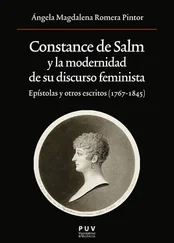Magdalena Tulli - Flaw
Здесь есть возможность читать онлайн «Magdalena Tulli - Flaw» весь текст электронной книги совершенно бесплатно (целиком полную версию без сокращений). В некоторых случаях можно слушать аудио, скачать через торрент в формате fb2 и присутствует краткое содержание. Год выпуска: 2007, Издательство: Archipelago Books, Жанр: Современная проза, на английском языке. Описание произведения, (предисловие) а так же отзывы посетителей доступны на портале библиотеки ЛибКат.
- Название:Flaw
- Автор:
- Издательство:Archipelago Books
- Жанр:
- Год:2007
- ISBN:нет данных
- Рейтинг книги:5 / 5. Голосов: 1
-
Избранное:Добавить в избранное
- Отзывы:
-
Ваша оценка:
- 100
- 1
- 2
- 3
- 4
- 5
Flaw: краткое содержание, описание и аннотация
Предлагаем к чтению аннотацию, описание, краткое содержание или предисловие (зависит от того, что написал сам автор книги «Flaw»). Если вы не нашли необходимую информацию о книге — напишите в комментариях, мы постараемся отыскать её.
Flaw — читать онлайн бесплатно полную книгу (весь текст) целиком
Ниже представлен текст книги, разбитый по страницам. Система сохранения места последней прочитанной страницы, позволяет с удобством читать онлайн бесплатно книгу «Flaw», без необходимости каждый раз заново искать на чём Вы остановились. Поставьте закладку, и сможете в любой момент перейти на страницу, на которой закончили чтение.
Интервал:
Закладка:
And what about that other square, in a different story, of necessity vacated and closed down? And the suddenly interrupted threads of stories entwining it? And the inhabitants, removed from their own homes by a peremptory decree? Up till now they had lived where they belonged, uninitiated into the mysteries of the freight railroad, uninformed about the layers of sand shifting beneath the foundations of their houses or the economies made in the construction of the walls, far away from the notary and his safe. They did not know the overalled masters and they did not know whose account they were paying for; otherwise they never would have resigned themselves to the wrong they had suffered. Misfortune is easiest to accept when it is beyond comprehension. And now, unlike the notary, these people no longer had anything to worry about. The worst had already happened. In the place where they had lived till now, the ground had been pulled from under their feet.
So it should come as no surprise if they now begin to emerge from the streetcar at the stop in front of the local government offices. First just a handful of them — let’s say one family, like a sign that is a prelude to the arrival of crowds. Someone has to take the first step, and this first step is from a later perspective nothing more than the presage of an already familiar continuation. Thus, the streetcar comes to a halt and the first refugees appear on the square: a small group of dark figures of different ages, in thick winter overcoats, caps with earflaps, head scarves, mufflers, and thick gloves. They tread unsurely, disoriented by the sudden downturn in their fortunes. The question of whether they may have come at the wrong time is the last thing they would wish to ask themselves. They too were not asked whether an explosion would be convenient for them. They hand down suitcases and bundles and arrange them on the sidewalk as if they believed — without so much as a hint of gratitude — that it had now been given over into their possession in return for the home they had lost. The streetcar cannot move on till they have finished unloading their belongings — till with the help of their children they have dragged out all the cardboard boxes tied with string, the sled, the teddy bear, the gramophone with its huge trumpet, and the canary in a cage. While they’re maneuvering all these objects, they have something to do, and while there is something to do, there is also hope. Afterwards things will only get worse.
The moment the streetcar pulls away, they’ll begin to look around helplessly, not knowing what to do with their luggage or themselves. They’ll check whether they have brought the tureen with the gold band, a memento of the large service of best porcelain that they could not fit in their cases. They’ll have a slight quarrel, allowing their raised voices to drift all the way up to the windows of the apartments. Then they’ll press their ears to the trunks to check which one contains the ticking dining room clock. But ticking is nowhere to be heard, so they have to open the trunks and make sure that the clock is safely where they packed it, wrapped in a blanket. If it hadn’t been for the haste imposed by unexpected events, they could have taken whole sets of tumblers and wine glasses, and they would have had time to wrap each individual one in tissue and pack it in sawdust. Yet if it hadn’t been for those events beyond their control, why would they have left home in the first place? The youngest little girl is hugging a small pillow. It is her entire luggage. She stumbles as she carries her unwieldy burden, but she won’t hear any word of encouragement, because the grownups have forgotten about the job they gave her. She’s despondent and wants to return home. She was always the apple of their eye; so why is it that right now they don’t hear her moaning and whimpering? She might be forgiven for thinking they have wads of invisible cotton wool stuck in their ears. When she stamps her little foot on the sidewalk, their gaze passes over her oblivious, wrapped in a mist of more important affairs. The pillow could just as well be lying on the curb, and that’s where it falls. The little girl grabs at sleeves and coattails, to no avail. Since her desperation remains without a response, she begins to understand that there is no return to what was before, and that all her privileges are gone. She sits down on her pillow, her eyes wide open in astonishment. The tears that proved useless dry on her cheeks.
But the two older children still suspect nothing. While the policeman checks their parents’ papers, they will feed the canary with a crust of bread stuck between the bars of the cage, abandoning their luggage unconcernedly on the sidewalk. The canary, tired from the journey, ruffles its feathers and turns its back on them. The only thing left is for them to run around in circles. And so they run till they’re fit to drop, laughing wildly. Gleefully disobedient, for their own amusement they start running away from their mother and making faces from a distance at their father, who is walking round the square and, straining to be as polite as possible, which is understandable in his situation, is asking about a place to rent. The mother, in the meantime, is worn out. She sits on the suitcases, though she would rather have simply lain down on them. She is in an advanced state of pregnancy; her overcoat will not fasten across her belly, and she looks as if she could give birth at any moment. The children will keep hiding round the corner and coming back, hot and perspiring, until at the final moment, exhausted by their own giddiness, they burst into bitter tears. And it’s plain to see that their laughter meant nothing, and that only their crying truly counts.
There is nothing to rent, nor could there be; each concierge sends the father on to the next building without so much as batting an eyelid. If only because of the cap with the earflaps and the thick winter coat, which smells of mothballs, drawing attention to itself and arousing mistrust. Otherness is always conspicuous from a distance, though it’s hard to say how one recognizes it, if not from certain elusive attributes of cut and fabric. And what on earth kind of cut is that, what on earth sort of cloth is it, how can anyone wear something like that? — such questions automatically present themselves to the concierges, and especially to their wives. As for the upper windows overlooking the street, not many details can be seen from up there, but even so the first thing that will be noticed by the concerned occupants will be the foreignness of the handful of overcoats, incongruous as dark inkblots against the clean sidewalk, with its pattern of paving stones like squared office paper. Concerning the matter of foreignness, then, the locals need only a single glance, accustomed as they are to recognizing it in all its shades. There is no need for the mind to exert itself, and it’s hard to be mistaken. The newcomers’ attire does not blend subtly into the background; on the contrary, it is strikingly dark, and stands out in sharp contours displeasing to the eye. It can immediately be seen that they do not belong to this story. Foreignness, isolated within itself, is incapable of explaining itself, despite having introduced into the landscape a stain so disturbing it borders on deliberate provocation. Foreignness is foreign, and that is what constitutes its essence.
In the meantime, behind the lace curtains indignation is growing. If I am one of the respectable housewives following the doings of the newcomers from their windows, in my opinion the children ought to realize that they are not at home here. Because whether they feel at home determines what they are allowed to get away with. And if they do not understand this, the fault most certainly lies with their parents. The latter, however, are quite clearly occupied only with themselves and with what has happened to them somewhere else, and is of no concern to anyone here. Do people here not already have their own local worries? We have no need of new complications. And after all, it’s quite possible that the newcomers, wrapped in their overcoats, scarves, and caps with earflaps, will bring with them a harsh climate foreign to this place: snowstorms or bitter frosts. One can only hope that if the threads of stories they have brought with them are immediately cut short, the newcomers will sit for a while on their suitcases and then, having nothing to latch on to, will disappear along with their luggage. They’ll simply vanish into thin air, ending this unexpected breakdown of order, and the prior state of affairs will be happily restored. It’s obvious, then, that they should not be given even the most cramped quarters to rent. Besides, for a paltry few pennies that may decrease in value anyway by tomorrow, no one will want to run the risk of problems such as icy drafts whistling through their apartment, especially since their entire supply of coal from the cellar would go up in smoke in the course of a few days. Why would they allow such a thing to happen when it’s more than likely that the bad luck which has already driven these warmly dressed figures from their homes will continue to hold them in its grip?
Читать дальшеИнтервал:
Закладка:
Похожие книги на «Flaw»
Представляем Вашему вниманию похожие книги на «Flaw» списком для выбора. Мы отобрали схожую по названию и смыслу литературу в надежде предоставить читателям больше вариантов отыскать новые, интересные, ещё непрочитанные произведения.
Обсуждение, отзывы о книге «Flaw» и просто собственные мнения читателей. Оставьте ваши комментарии, напишите, что Вы думаете о произведении, его смысле или главных героях. Укажите что конкретно понравилось, а что нет, и почему Вы так считаете.












